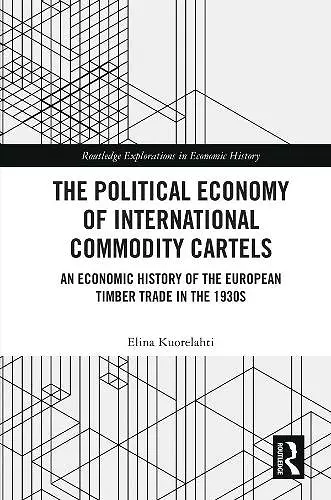The Political Economy of International Commodity Cartels
An Economic History of the European Timber Trade in the 1930s
Format:Paperback
Publisher:Taylor & Francis Ltd
Published:1st Aug '22
Currently unavailable, and unfortunately no date known when it will be back
This paperback is available in another edition too:
- Hardback£145.00(9780367376390)

The Political Economy of International Commodity Cartels examines how international commodity cartels in the 1930s were impacted not only by commercial rivalry, but also by international trade political and diplomatic concerns.
This work presents the rise and decline of the European Timber Exporters’ Convention (ETEC) and analyses how firms navigated through the cartel game under increasing international competition, pressures from the national governments, and the interventionist endeavours of the League of Nations. Cartels are often associated with, in the standard economic interpretation, business collusion. However, in using vast archive sources and historical methodology, the chapters in this book shed light onto how international relations shaped cartels. The rise of British protectionism, the emergence of the Soviet Union as an industrial power, and the economic rapprochement of the League of Nations in the early 1930s created a wave of political and diplomatic challenges in the timber trading countries and affected cartelisation. Timber firms in the biggest producer countries—Finland and Sweden—were uninterested in international cartel collaboration, but under pressure joined the ETEC nevertheless.
This book makes a strong contribution to the fields of business history and cartel studies. It is an essential read for economic historians interested in how political pressure shaped international cartels and how cartels became avenues of diplomacy.
ISBN: 9780367690250
Dimensions: unknown
Weight: 235g
152 pages